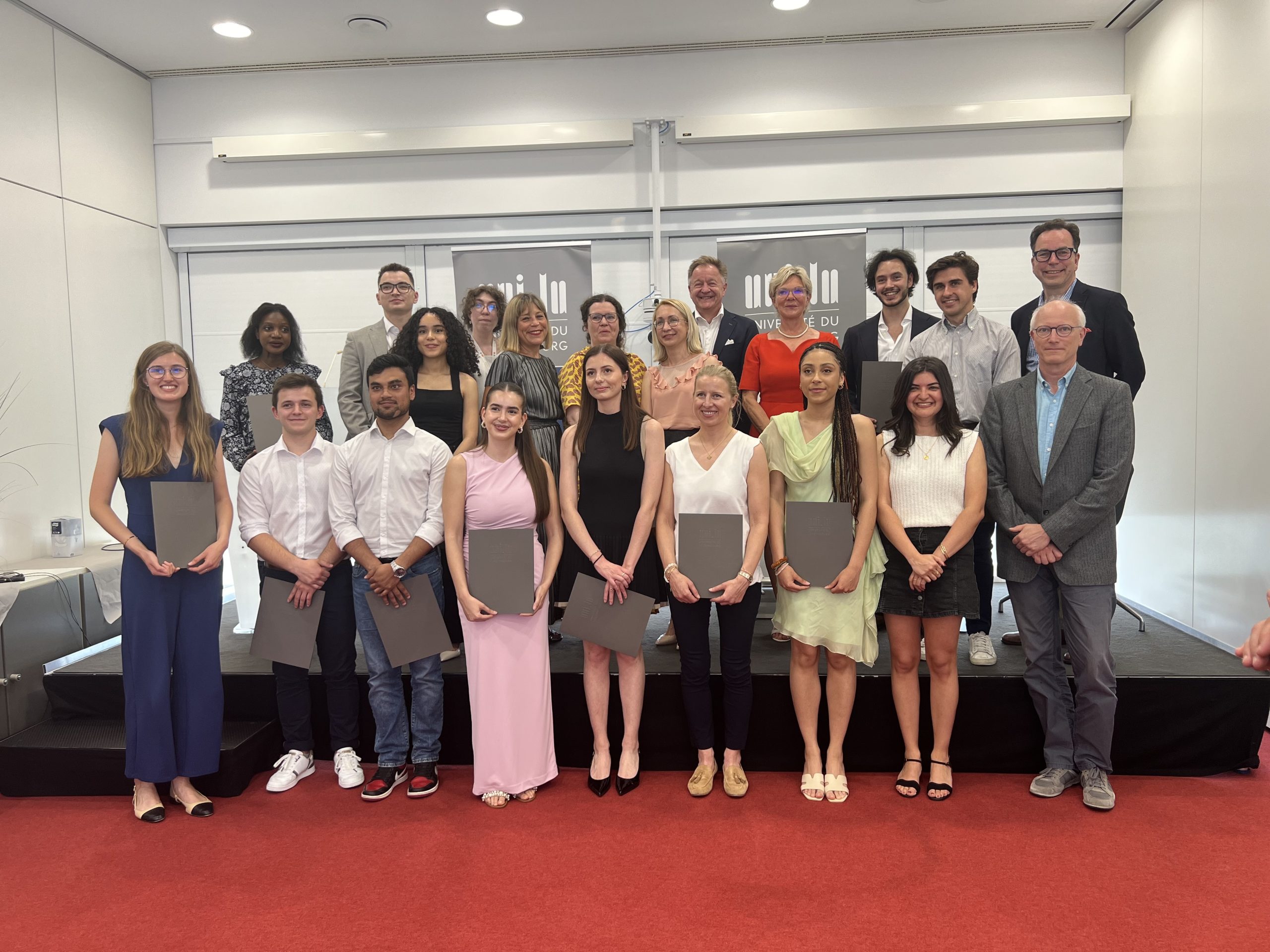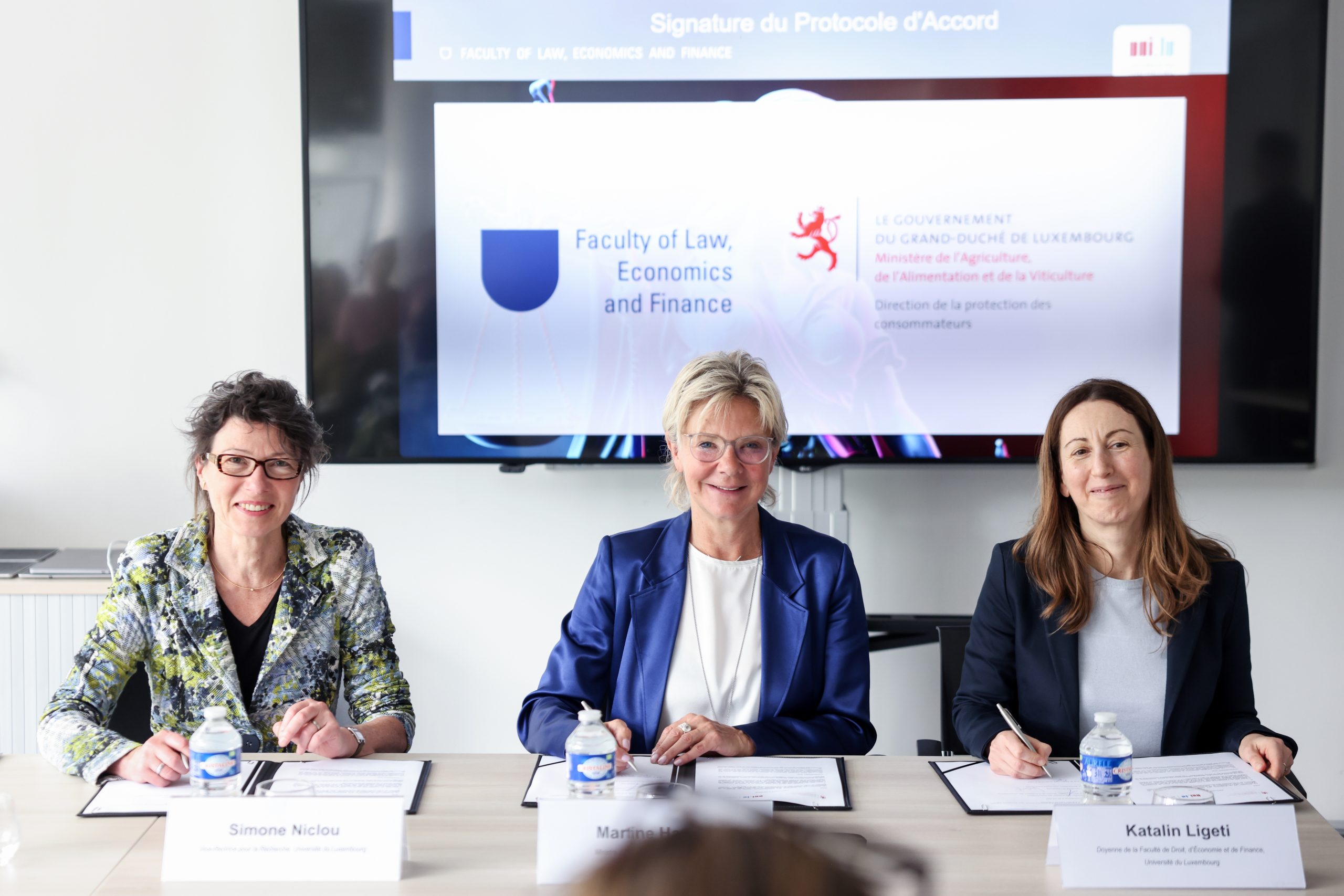The legal profession is innately a human profession. Clients are people, with ideas, opinions, objectives and concerns. Then why, wondered Professor Elise Poillot more than a decade ago, is the act of teaching law so often disconnected from this reality? How can students learn what it takes to be a good lawyer How can students learn what it takes to be a good lawyer only by attending lectures and focusing excessively on theoretical knowledge? How can teaching law become more engaging and more practical for future professionals?
The answer came in the form of clinical legal education, an innovative way to teach law beginning in the United States before spreading to Europe and beyond. This experiential learning method which fosters the growth of knowledge, personal skills and values as well as promoting social justice, requires the establishment of a Legal Clinic. Operated by law students and supervised by teachers and professionals, legal clinics take many forms — from providing legal support to NGOs, to informing individuals about their rights. They may also welcome the public, examine cases, meet with clients, and offer legal information.
A tool for consumer empowerment
With the support of former President of the Luxembourg Bar, Rosario Grasso and Bob Schmitz, special counsellor at the Union Luxembourgeoise des Consommateurs, Professor Poillot, who specialises in Civil Law, opened the doors of the Consumer Law Clinic, a client clinic at the University of Luxembourg in 2015. The Consumer Law Clinic examines cases between professionals and private citizens within the jurisdiction of Luxembourg law. It can handle claims up to 5000€.
“The Consumer Law Clinic fills a gap,” says Prof. Poillot. Although consumer law is highly developed, it is not as frequently applied as other kinds of law. “It’s not worth going to court for 300€,” she explains. Rather than pursuing time-consuming and possibly expensive legal action, consumers often prefer to cut their losses. In the small country of Luxembourg, the Clinic’s role is tangible. By providing a free resource, the Clinic serves to empower consumers, putting pressure on less-scrupulous professionals.
In tandem with the Client Clinic, Prof. Poillot has also established a Street Law programme at the University of Luxembourg—an initiative that takes students beyond the university walls and into direct contact with the community. Through this outreach programme, students engage with targeted audiences, from vulnerable consumers seeking information about their rights to institutions aiming to improve the legal framework for consumer protection. Collaboration with public authorities is an integral part of this work: the Clinic has, for example, provided valuable feedback on consumer experiences to the Directorate for Consumer Protection at the Ministry of Agriculture, Food and Viticulture, led by Minister Martine Hansen. This collaboration is just one of many impactful activities carried out through the Street Law programme, which gives students a unique opportunity to contribute meaningfully to both public awareness and policy development.
Learn more about how Law Clinic students engage with the Luxembourg legislative and executive branches
One foot in the real world
For many students, the Law Clinic serves as a “first step into the professional world”, Dr. Mathilde Calcio-Gaudino, research scientist and legal clinical educator, explains. They already have the knowledge, but the clinic requires much more than a solid foundation in legal theory and methods. “Here,” says Dr. Calcio-Gaudino, “The focus is on developing soft skills.” From dressing appropriately, to dealing with difficult questions, to knowing how and when to end a meeting, the Clinic provides students with the codes and behaviours of the legal profession.
During their course of study, Law students are given practical cases. However, the Clinic cases are much more complex, leading to greater leaps in learning. Dr. Calcio-Gaudino draws a comparison between practical cases and clinical work, “Practical cases are superficial, they give students a very flat view of a problem, which can be solved neatly.”
In contrast, at the Clinic, students are confronted with the reality of working with clients. This means understanding that the client is not without biases, sometimes omitting important information or not being able to provide all necessary documents. The mental state of the client is also important to take into consideration. This is why training also includes workshops with a psychologist. Clients may be angry or withdrawn, and the students need to know how to communicate effectively with them.
“We went to University’s Law Clinic eight or nine years ago for a problem with a sofa that had been delivered defective”, explains one of the Clinic’s former clients. “Thanks to the clinic, our complaints were taken into consideration by the vendor. The Clinic’s help was really invaluable and enabled us to resolve the situation satisfactorily.”
Dr. Calcio-Gaudio also acknowledges the benefits of the Law Clinic for the clients. “They feel heard,” she says. “For some, it brings them hope and the will to continue with legal action.” Dr. Calcio Gaudio points to one other important aspect that cannot be overlooked: language. In Luxembourg, many consumer law resources are in French, leaving non-French speakers to struggle. However, services in English are possible at the Law Clinic where students follow a bilingual study programme.
Building skills that matter

The 2023-2024 Law Clinic cohort at the closing ceremony in June 2024 pose with Luxembourg Minister for Consumer Protection, Ms. Martine Hansen and the academic and professional team.
For Celine Schmitz, who participated in the Clinic during the 2020-2021 academic year, the experience has had a lasting effect, “the Clinic played a major role in my career choice. It was through Law Clinic that I learned what it was like to manage litigation files and how to build relationships with the consumers who came to us”, she says. Me. Schmitz, who was admitted to the Luxembourg Bar in 2022 and now handles ligation for criminal, civil and administrative cases as an ‘Avocat à la cour’ at a practice in Luxembourg City.
Legal clinic alumna, Charlotte Thomas, now works as in-house legal counsel in Luxembourg. “This experience has strengthened both my analytical skills and my sense of pedagogy – two essential qualities in the exercise of my current functions,” she emphasizes. Ms. Thomas characterises the clinic as “a real springboard for my academic training and professional development.”
Saïd Simmou, Legal Director at a Luxembourg Real Estate firm, joined the Clinic as a non-traditional student during the 2019-2020 academic year, immediately recognised the value of the programme. “Taking part in the Law Clinic was a truly enriching experience for me. I joined the programme 10 years after finishing my studies and already had some legal experience. That’s when I truly realised how valuable something like this would have been as a student, having direct access to legal professionals (lawyers) and working on real cases with real ‘patients,’” Mr. Simmou says.
Celebrating a decade of service

Prof. Simone Niclou, Vice-Rector for Research, Ms. Martine Hansen, Minister for Consumer Protection and Prof. Katalin Ligeti, Dean of the Faculty of Law, Economics and Finance sign a formal agreement in May 2025.
In May 2025, the Legal Clinic celebrated a decade of innovative education and service to the public with over 200 cases handled. For Prof. Poillot, the project’s creator and staunchest advocate, the accomplishments of the 118 students who have participated in the Clinic over the past 10 years has been the most rewarding part of the journey.
Prof. Poillot also doesn’t hesitate to mention how the enduring success of the project has changed the way some of her colleagues think about legal education, “It has shown them that there is more than one approach to teaching law.”
More information about the University of Luxembourg Consumer Law clinic, including how to submit your case for review, can be found at https://www.uni.lu/fdef-en/research-departments/department-of-law/studies/consumer-law-clinic/
